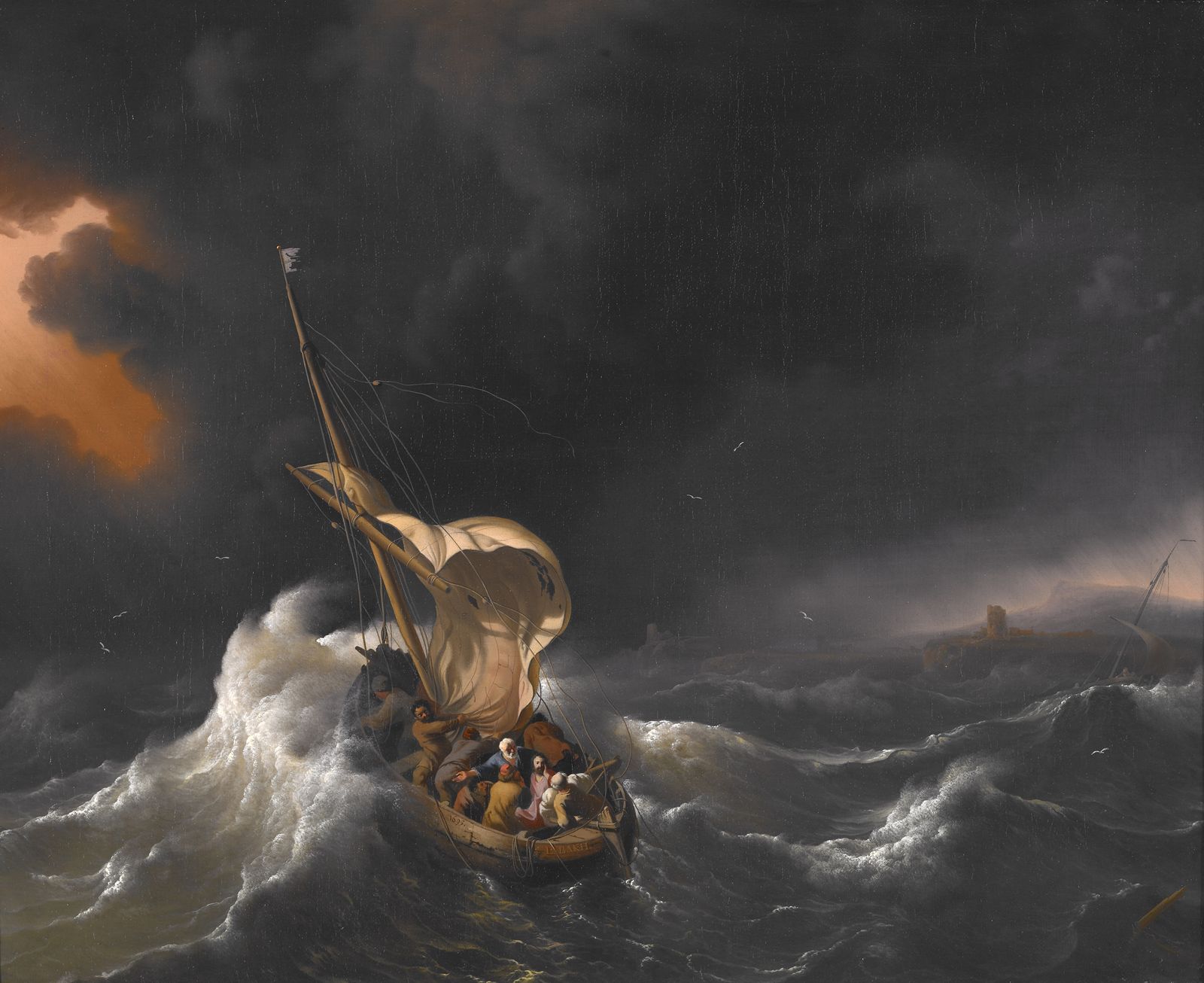Fearful Unbelief
Mark 4:35-41 — 35 On that day, when evening had come, he said to them, “Let us go across to the other side.” 36 And leaving the crowd, they took him with them in the boat, just as he was. And other boats were with him. 37 And a great windstorm arose, and the waves were breaking into the boat, so that the boat was already filling. 38 But he was in the stern, asleep on the cushion. And they woke him and said to him, “Teacher, do you not care that we are perishing?” 39 And he awoke and rebuked the wind and said to the sea, “Peace! Be still!” And the wind ceased, and there was a great calm. 40 He said to them, “Why are you so afraid? Have you still no faith?” 41 And they were filled with great fear and said to one another, “Who then is this, that even the wind and the sea obey him?”
Keep in mind that the point of Mark 4:35-41 is not that God will deliver you from all your trials if you just have enough faith–no, faithful Christians lose their jobs; faithful Christians die from cancer; faithful Christians are persecuted and mistreated; faithful Christians are even killed in natural disasters. The point is that God is powerful enough to protect your faith as you trust in Him. He will not forsake you or bring something to crush your faith.
So that’s why, as we process this text, we need to be thinking of the intangible things that threaten our comfort and require faith to endure. One of the most common is relationship tension; perhaps the way our spouse, or family member or co-worker or friend or child treats us–“If I don’t do this, then that is going to happen in the next few moments or at some time in the future, and I can’t allow that to happen because that will crush me.” So we either resort to perpetual worry, living our lives trying to prevent all the potential disasters that could occur and/or we seek to squash any identified threat to our well-being as quickly and decisively as possible with no regards to how God commands us to deal with things. This is the same type of fear that led the disciples to conclude that Christ doesn’t care about them in their dangerous state.

